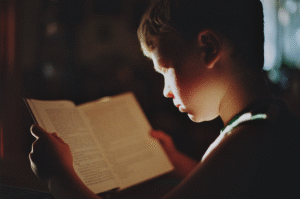Parenting is one of the most deeply fulfilling experiences in life but it is also one of the most underestimated. It’s not just diapers, first steps, or bedtime stories. It’s a full-time emotional, physical, mental, and spiritual responsibility. The real weight of parenting is invisible to outsiders but intensely felt by every parent who has ever stayed up all night with worry, worked overtime to afford school fees, or put their own needs aside to prioritize their children.
Behind every smiling family photo is a hidden world of sacrifice, self-doubt, discipline, decisions, and devotion. This article explores the truths rarely spoken, the emotional labor often overlooked, and the unseen strength required to raise children in today’s world.
Parenting Isn’t a Role — It’s a Lifelong Mission
The modern parenting journey goes far beyond feeding and teaching. It is an ever-evolving commitment, where the goal isn’t perfection, but progress.
Whether you are a stay-at-home parent, a working mother, a single father, or part of a co-parenting team, the job remains one of relentless presence and endless learning.
Parenting means:
- Being the emotional anchor for your children while managing your own emotional storms
- Juggling countless roles: caregiver, counselor, cook, teacher, friend, protector, provider
- Making invisible decisions daily that can shape a child’s confidence, habits, and worldview
- Being patient when you’re running low, and present when you’re mentally elsewhere
Parenting requires emotional endurance, the kind that never truly clocks out.
The Layers of Invisible Labor
The “real weight” of parenting doesn’t lie in the obvious tasks. It hides in the layers of invisible labor that are felt but not always seen.
1. The Mental Load
- Constant scheduling: doctor’s appointments, school projects, lunches, sports, playdates
- Anticipating every need before it’s spoken
- Being the default decision-maker, even in a two-parent household
This kind of cognitive labor has been widely studied, including in research from Bright Horizons, which found that mothers, in particular, carry the majority of this silent planning burden even when both partners work full time.
2. The Emotional Burden
- Absorbing your child’s pain without being able to fix it instantly
- Constantly checking if you’re “doing it right”
- Second-guessing choices from screen time to schools to how you disciplined them last night
- Feeling torn between boundaries and kindness
3. The Financial Pressure
- Providing food, clothing, healthcare, education, activities, and more
- Saving for the future while barely managing the present
- Working harder and longer to offer more, even if it costs time together
Parenting comes with emotional investments, but also economic weight that grows with each passing year.

Stages of Parenting: Every Season Has Its Storms
Infancy (0–2 years)
- Physical exhaustion from sleepless nights
- The intensity of learning every need without language
- Fear of doing something wrong in every step
Early Childhood (3–6 years)
- Discipline vs. understanding
- Fostering independence while ensuring safety
- Answering endless “why” questions with patience
School-Age (7–12 years)
- Academic stress and extracurricular balance
- Identity formation and social development
- Being a role model through behavior
Adolescence (13–18 years)
- Emotional distancing and push for independence
- Technology battles, peer influence, and mental health concerns
- Transitioning from control to coaching
Young Adulthood (18+)
- Letting go but staying present
- Offering advice without overstepping
- Supporting without rescuing
Every stage comes with new skills to learn, new emotions to manage, and new burdens to bear.
When Love Feels Heavy
Love for a child is unconditional, but it doesn’t erase exhaustion, burnout, or grief over lost versions of yourself. Parents often feel:
- Burned out but guilty for admitting it
- Lonely, even in a home full of children
- Invisible, as others rarely see their daily efforts
- Judged, by society or even by other parents
- Disconnected, from their old dreams, careers, or identities
This duality joy wrapped in fatigue, pride laced with pressure — is the true emotional reality of parenting.
How to Carry the Weight Without Losing Yourself
1. Acknowledge the Strain
You are not weak for struggling. Parenting is hard even when it’s also rewarding. Silence breeds burnout.
2. Build a Support System
Whether it’s a spouse, a grandparent, a therapist, or an online support group, no one should carry the full weight alone.
3. Stop Measuring Against Perfection
Children don’t need perfect parents. They need safe, honest, loving, and resilient ones.
4. Create Boundaries for Self-Preservation
Even 30 minutes of protected quiet time a day can give you the strength to show up more fully for your children.
5. Seek Joy in Small Wins
A genuine smile, a completed school project, a dinner without tantrums — these moments matter more than grand milestones.
Final Thoughts: Parenting with Weight, Wisdom, and Worth
The world often glamorizes parenthood while minimizing the cost it carries. Behind the laughter and learning lies a lifetime of decision-making, fear, effort, and love that never runs dry. But you are not just a parent you are a foundation, a protector, a guide, and a witness to your child’s evolution.
You don’t need to carry the weight of parenting in silence. Speak it, share it, and seek support. That’s not weakness — it’s wisdom. Because in this long, demanding journey, you matter just as much as the children you’re raising.
Faqs
1. Why does parenting sometimes feel overwhelming, even when I love my children?
Because parenting is both emotionally and physically demanding. You’re juggling your child’s needs, your responsibilities, and often your own emotional baggage. It’s normal to love your children deeply and still feel drained, guilty, or uncertain. Acknowledging this doesn’t make you a bad parent—it makes you an honest one.
2. What are some of the “invisible” pressures of parenting people rarely talk about?
Parents often face:
- Emotional labor (worrying, planning, anticipating every need)
- Mental overload from managing schedules, school, meals, and moods
- Loss of identity or personal time
- Relationship strain with a partner or support system
These unseen burdens can weigh heavily, even when everything looks fine on the outside.
3. How can I cope with the constant pressure to “do it all” perfectly?
Let go of the myth of perfection. Choose progress over perfection and prioritize what truly matters to your family. Build routines that allow rest, seek support, and give yourself permission to say “no.” Your children need a present parent—not a perfect one.
4. Is parental burnout real, and how do I know if I’m experiencing it?
Yes, parental burnout is real. Signs include:
- Chronic exhaustion
- Emotional detachment from your child or family
- Feeling irritable or hopeless
- Constant guilt or self-doubt
If you’re feeling this way, it’s not a sign of weakness. Reach out for help—from a partner, therapist, or support group. You deserve care too.
5. How can I build resilience and still find joy in parenting?
Start by setting boundaries, asking for help, and practicing self-compassion. Embrace the messy, imperfect moments—they’re often the most real. Connect with other parents, take short breaks when you can, and celebrate small victories. Resilience grows when we feel supported, not isolated.



